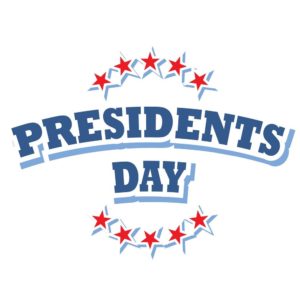 Originally established in 1885 by the U.S. Congress to honor George Washington’s birthday (February 22), Presidents’ Day has a long and interesting history, and now honors all past Presidents.
Originally established in 1885 by the U.S. Congress to honor George Washington’s birthday (February 22), Presidents’ Day has a long and interesting history, and now honors all past Presidents.
There are four U.S. Presidents who were born in February – George Washington, William Henry Harrison, Abraham Lincoln, and Ronald Reagan. Throughout the 1800s, Washington’s birthday was unofficially celebrated, and the federal holiday signed into law in 1885 was only applicable to the District of Columbia since Congress had little authority over individual states. The Uniform Monday Holiday Act of 1971 (signed by Nixon) made Washington’s birthday the third Monday in February.
Presidents’ Day was known as Washington’s birthday for most of its original history. The faith, character, and humility of George Washington made him one of the most respected individuals in the history of our nation. The fact that he became the first President under our federal Constitution only enhanced his reputation, especially as he set a precedent for honoring the oath of office.
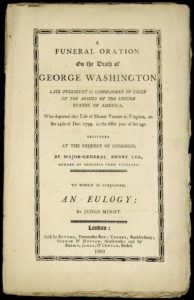 When he died on December 14, 1799, the news of his death sparked over 400 mourning ceremonies and eulogies between that date and February 22, 1800, when Congress designated a national day of mourning. Politicians, clergy, women, and his 300 newly-freed slaves honored his character.
When he died on December 14, 1799, the news of his death sparked over 400 mourning ceremonies and eulogies between that date and February 22, 1800, when Congress designated a national day of mourning. Politicians, clergy, women, and his 300 newly-freed slaves honored his character.
The Sixth Congress unanimously commissioned Richard Henry “Light Horse” Lee to write Washington’s official eulogy to express “those sentiments of respect for the character, of the gratitude for the service, and of grief for the death of that illustratious personage.”
Lee had been a major general in the Continental Army, a member of the Continental Congress, a governor of Virginia, and a close friend of Washington. He would also be the father of Robert E. Lee, the soon-to-be-famous Civil War general.
Part of the closing of his 3,500-word eulogy was this famous statement: “First in war – first in peace – and first in the hearts of his countrymen, he was second to none in the humble and endearing scenes of private life; pious, just, and sincere; uniform, dignified, and commanding, his example was as edifying to all around him, as were the effects of that example – lasting.”
 Modern historians look at the immediate months and years following Washington’s death as a sort of idolatrous worship of George Washington. In reading the many eulogies and praises coming forth, you might think the man was a “god” of some kind. There is no question that such worship would be a dangerous trend to avoid. But the breadth of the gratitude, from every strata of society of a nation newly-freed from tyrannical oppression (religious, political, and economic), trended in context toward genuine thanks ultimately to God.
Modern historians look at the immediate months and years following Washington’s death as a sort of idolatrous worship of George Washington. In reading the many eulogies and praises coming forth, you might think the man was a “god” of some kind. There is no question that such worship would be a dangerous trend to avoid. But the breadth of the gratitude, from every strata of society of a nation newly-freed from tyrannical oppression (religious, political, and economic), trended in context toward genuine thanks ultimately to God.
Washington himself, in his inaugural address, after stating in humility his lack of qualifications, stated, “It would be peculiarly improper to omit in this first official Act, my fervent supplications to that Almighty Being who rules over the Universe, who presides in the Councils of Nations…. Every step, by which they [the people of the United States] have advanced to the character of an independent nation, seems to have been distinguished by some token of providential agency.”
The origin of Presidents’ Day is thus rooted in the character of George Washington, who was raised as a young boy to honor God, and who grew into a man with a marked humility yet a trust in God and His sovereignty (or Providence). It is interesting to note that the other Presidents born in February were also marked by God in unusual ways fitted to the time in which they served.
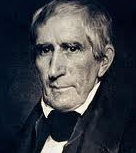 William Henry Harrison, our 9th President born on February 9, is known to have had the longest inaugural address and the shortest term, since he gave his two-hour address on a cold, 48-degree day in 1841 with no overcoat, hat, or gloves. He died of pneumonia 32 days later.
William Henry Harrison, our 9th President born on February 9, is known to have had the longest inaugural address and the shortest term, since he gave his two-hour address on a cold, 48-degree day in 1841 with no overcoat, hat, or gloves. He died of pneumonia 32 days later.
However, his inaugural address was a seminar on the nature of our Republic, emphasizing the rule of law, preservation of religious liberty, and dangers of the concentration of power in general and in the Executive in particular by attempting to bypass Congress. He emphasized that the spirit of liberty must remain in the people; also “expressing to my fellow-citizens a profound reverence for the Christian religion and a thorough conviction that sound morals, religious liberty, and a just sense of religious responsibility are essentially connected with all true and lasting happiness.”
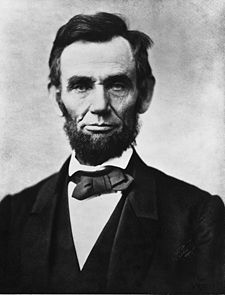 Abraham Lincoln, our 16th President born on February 12, was inaugurated in the midst of the turmoil of our Civil War. Though difficult at times to comprehend his various views on slavery which changed throughout his public life, his rebuttal of the Dred Scott Supreme Court case of 1857 was an excellent articulation of the fact that the Court cannot write law, and thus it only applied to that one case.
Abraham Lincoln, our 16th President born on February 12, was inaugurated in the midst of the turmoil of our Civil War. Though difficult at times to comprehend his various views on slavery which changed throughout his public life, his rebuttal of the Dred Scott Supreme Court case of 1857 was an excellent articulation of the fact that the Court cannot write law, and thus it only applied to that one case.
His second inaugural address was a classic invoking so many biblical analogies for the preservation of the Union. Perhaps most famously, however, his Gettysburg Address in 1863 stated his prayer “that this nation, under God, shall have a new birth of freedom – and that government of the people, by the people, for the people, shall not perish from the earth.” This is something we can identify with in our own day.
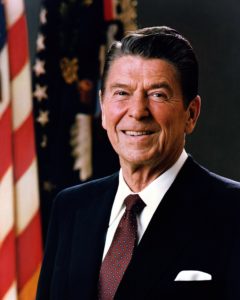 Ronald Reagan, our 40th President born on February 6, was known for his oratory and humorous way to make his point. In his inaugural address in 1981, he famously declared, “In this present crisis, government is not the solution to our problem; government is the problem. From time to time, we have been tempted to believe that society has become too complex to be managed by self-rule, that government by an elite group is superior to government for, by, and of the people. But if no one among us is capable of governing himself, then who among us has the capacity to govern someone else?”
Ronald Reagan, our 40th President born on February 6, was known for his oratory and humorous way to make his point. In his inaugural address in 1981, he famously declared, “In this present crisis, government is not the solution to our problem; government is the problem. From time to time, we have been tempted to believe that society has become too complex to be managed by self-rule, that government by an elite group is superior to government for, by, and of the people. But if no one among us is capable of governing himself, then who among us has the capacity to govern someone else?”
President Reagan declared 1983 “The Year of the Bible” and stated, “Of the many influences that have shaped the United States into a distinctive nation and people, none may be said to be more fundamental and enduring than the Bible.”
Presidents’ Day reminds us that the President is to be an example of the faith and character before the people and those who are their representatives. They are to understand and be committed to preserve the unique form of self-government, a Republic, that has protected liberty. That is why Article II, Section 1, Paragraph 8 states that before the President executes his office, he must take this oath: “I do solemnly swear (or affirm) that I will faithfully execute the Office of the President of the United States, and will to the best of my Ability, preserve, protect, and defend the Constitution of the United States.”







